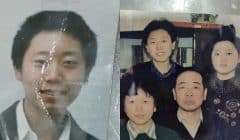Chinas Torture Training Camp Focuses on Falun Gong

LOS ANGELES (FDI) In the 1960s, Chinese leaders visited model communities to learn new and better agricultural and industrial methods. Today, Chinese authorities are sending prison directors from around China to study model labor camps that have reportedly been effective in reeducating or transforming Falun Gong practitioners through torture and brainwashing methods.
LOS ANGELES (FDI) – In the 1960s, Chinese leaders visited model communities to learn new and better agricultural and industrial methods. Today, Chinese authorities are sending prison directors from around China to study model labor camps that have reportedly been effective in “reeducating” or “transforming” Falun Gong practitioners through torture and brainwashing methods.
The Gaoyang Forced Labor Camp in China’s Hebei Province is one such camp that has gained recognition for its ability to force Falun Gong practitioners to renounce their beliefs through torture. Because of its evident success, Chinese authorities are routinely sending prison and labor camp directors from around the country to Gaoyang to learn more “effective” torture methods.
In addition to the rounds of prison directors, authorities have also sent to Gaoyang many Falun Gong practitioners who have repeatedly resisted torture, evidently hoping that the more radical methods used at Gaoyang would work where others failed.
Ms. Cui Suzhen, 61, was transferred from a labor camp in Shijiazhuang City to Gaoyang because authorities were unsuccessful in forcing Ms.Cui to discontinue her practice of Falun Gong. Ms. Cui went on a hunger strike in order to protest her illegal detention and the persecution of Falun Gong in China.
According to reports from those who were held at Gaoyang, on three separate occasions the labor camp guards force-fed Ms. Cui large quantities of human excrement. The guards also continuously beat her, shocked her with electric batons, used pliers to pinch her skin and crush her nipples, and buried her in snow for extended periods of time.
Ms. Liu Haiqin, a former employee of Handan City’s Bureau of Finance was transferred to Gaoyang from a labor camp in Shijiazhuang. Because she refused to sign a “transformation statement” renouncing her practice of Falun Gong, Ms. Liu was handcuffed and forced to squat for sixty hours, all the time suffering shocked by the guards with cattle prods (electric batons).
Ms. Song Jiaxian is a 39-year-old Falun Gong practitioner from Chengde. Gaoyang guards tortured her with a technique called “tying the ropes”. Victims report that this torture consists of a rope wound tightly around the neck and arms while the arms are forced up behind the body making it very difficult to breathe. The pain generated from this torture is so severe and intense that victims often lose control of their bodily functions. Guards applied this torture to Ms. Song 14 times, leaving both her shoulders dislocated.
Survivors of the Labor Camp say the women’s section of Gaoyang employs a variety of torture techniques on Falun Gong practitioners, including extreme sleep deprivation, electric shocks, electric shocks while the victim is submerged in water, inserting needles under their fingertips, burying them alive to the verge of suffocation, stuffing used sanitary napkins into their mouths, and hammering nails into their toes.






